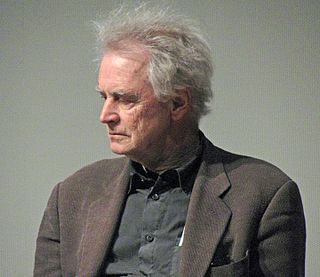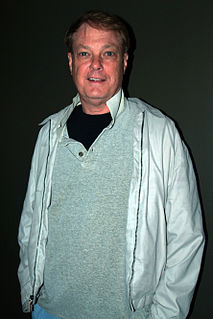A Quote by Tom Ford
When you decide you want to make a film, you start listening to everything that anyone has to say about filmmaking and reading everything, and there's a maxim about film being a visual medium, and so you need to make, in a sense, a silent movie and layer on dialogue.
Related Quotes
The only way I know as a director is to figure out what the film is about. And out of the theme and the sense of what the film is about, all those decisions start to make sense. But to find that truth within it, you have to limit your possibilities and limit your choices. That's where this visual language grows out of.
If I'm ever working on a set and anyone talks about a master shot, I say there is no master shot. Before I even went to film school, I learned about movies by being in a British feature film, where everything was shot master shot, mid-shot, close-up. But I reject the idea of a master shot. You don't shoot everything mechanically; you find imaginative ways that serve the action.
For me, as a film goer, I like nothing more than to sit in the cinema, have the lights go down and not know what I'm about to see or unfold on-screen. Every time we go to make a film, we do everything we can to try to systematise things so we're able to make the film in private, so that when it's finished it's up to the audience to make of it what they will.
I want viewers want to talk about The Conquest. I want the dialogue to start after the movie. The cinema is there to leave a trace. I hope my film leaves a trace and that it will open a door for French cinema and that tomorrow other directors will make political movies. The job of a filmmaker today is to talk about the world surrounding him and, through his movies, to both entertain and raise questions about modern society.
I earn my living by teaching film, mostly filmmaking but also teaching courses on current cinema. I'm interested in movies. I hope that's not all I'm interested in. In that sense, it's maybe a little misleading. I don't expect to make another movie about films, but I may continue to write about them.
I thought 'The Artist' was a perfect way to find a good balance. The artistic challenge is obvious because the film is black-and-white and its silent, but I did my best to make the movie accessible and easy to watch. I really don't want to make elitist movies. I really try hard to work for the audience. Audiences are smart. They get everything.
I think a lot of people go into filmmaking thinking, "How can I make a career?" And so when they make their first film, they make it thinking, "Well, this'll be the one that gets me to the place where I can make the second film the way I want to make it, and that'll get me to the place where I can make $100 million on the third film." And I thought, "Well, if I put sustainability at the bottom of my priority list, then what opportunities is that going to free me up to pursue?" And that's what I've always done.
I'm ready for all forms of dialogue about the film The Conquest. There will be a lot of political talk, but I don't think the film itself will be scandalous. For the French, there are so many emotions relating to Sarkozy and politicians in general that I think the film will generate a lot of passion, whether it be negative or positive. Above all, it's a fictional film. It was important not to make a documentary and to really pay attention to the images. From the choice of the actors to the mise en scene, the film is completely cinematographic. It's not just a boring political movie.
The amazing fact that one person can make his own film - I think animation is somewhat unique in that respect. I don't need to deal with lawyers. I don't need to deal with corporations. I don't need to deal with executives or agents or any of that. I can just sit at home and make a feature film. That's a wonderful experience. Each film I make gets more popular, more press and makes more money. So it's amazing that I've survived and actually prospered doing that sort of homegrown, cottage-industry filmmaking.







































